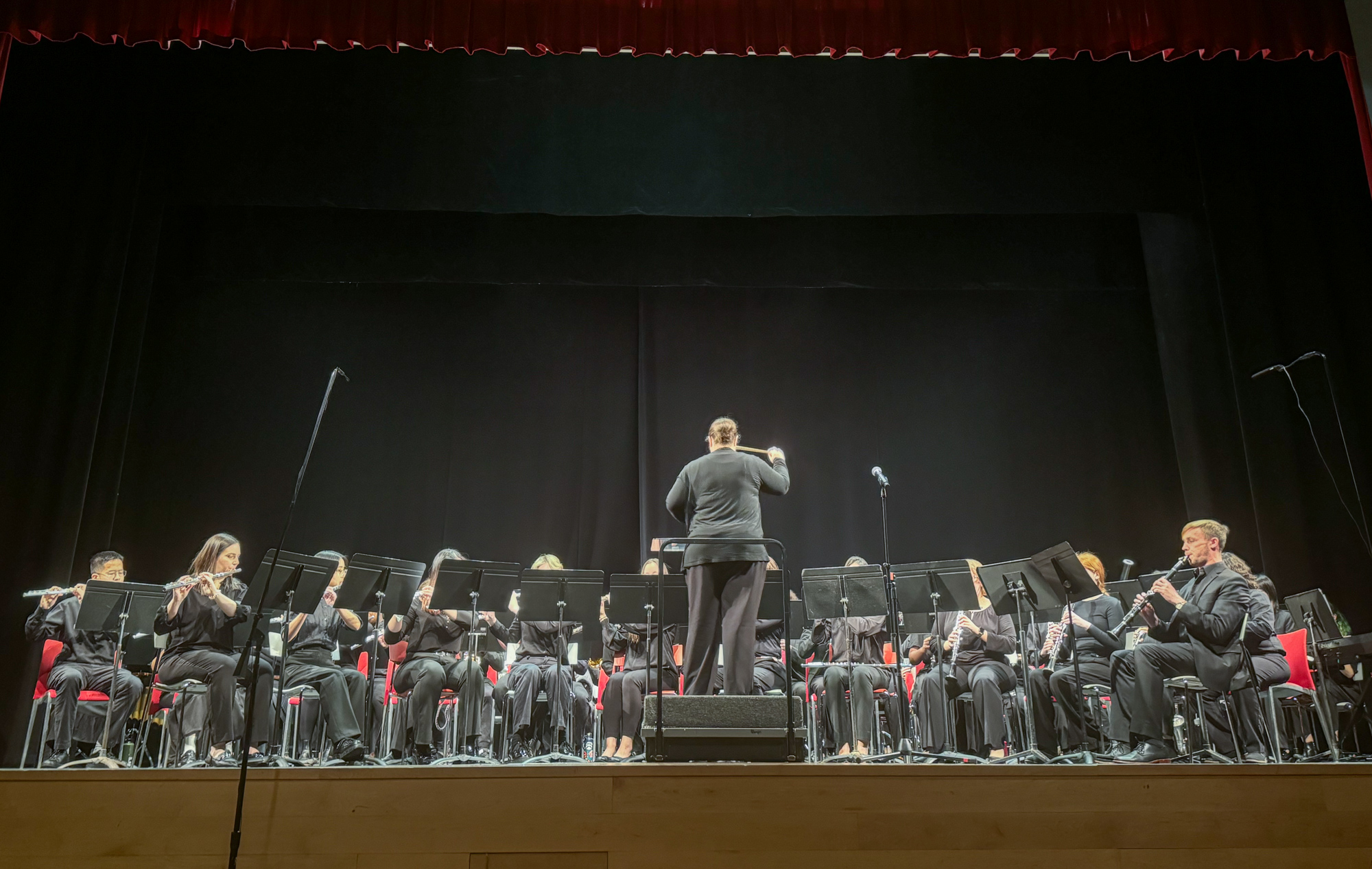When you think of the Beanpot, certain images may come to mind: sticks clashing, hockey players colliding and a cacophony of fans filling an arena. But, there is another Beanpot that flies under the radar — one that uses the power of music to unite rather than divide.
Bands of the Beanpot, an annual concert with performances from Boston University, Northeastern University, Harvard University and Boston College bands, was hosted at NU on Oct. 27.
The event transforms the typical Beanpot tradition of competition into one of collaboration.
“This is the only opportunity for all four bands to come together and listen to each other,” Mark Olson, director of Harvard Band and Wind Ensemble, said.
BU Senior Bonnie Chen has been involved in BU Concert Band since her freshman year.
Chen said she enjoys talking to band members from the other schools at the Beanpot about their experiences and their reasons for joining their respective bands.
“I think it’s important to promote music and to collaborate with other schools and not necessarily win,” Chen said.
Bands of the Beanpot does not unite only the four schools, but also the Boston community as a whole.

BU Concert Band is “open to the community,” Chen said. Performers consist of BU undergraduate students, graduate students and alumni, as well as other members of the Boston community.
The concert kicked off with the University Wind Ensemble of Boston College, conducted by Sebastian Bonaiuto, the school’s first full-time band director.
“It’s very interesting to hear what other bands are doing, as well as what we’ve accomplished throughout this semester,” Chen said.
Afterward came BU Concert Band, conducted by Jennifer Bill, director of Concert Band and a lecturer of saxophone in the College of Fine Arts.
The band opened with a performance of “Horizons Untold,” composed by Evan VanDoren, followed by the second movement of Roger Cichy’s “First Flights,” titled “The Kittyhawk Flyer.’”
“[The students] have a voice in the music that we choose, and, of course, it is their voice that is coming through the instruments to bring the music to the audience,” Bill said.
The band continued with the first two movements of Brian Balmages’ “Open Space.”
“Each movement is dealing with a specific aspect of a mission that Brian’s friend actually went on,” Bill said. “As he was watching his friend get rocketed into space, all these melodies and images came to mind, so he wrote this piece.”
The final piece the BU Concert Band performed was “Orbital,” composed by Adrian B. Sims.
Bill said that among the student musicians from each group, she estimates about 90% of them are not music majors.
She said the student performers are part of a “special community.”
“It’s a way for them to connect as musicians but mostly a way for them to connect just as humans who love music,” she said. “These are people that are going to support the arts for the rest of their lives.”
After BU Concert Band, Harvard Wind Ensemble took the stage, led by Olson.
To finish off the concert, NU showcased a performance by their wind ensemble, conducted by Allen Feinstein, an NU professor and conductor of film music, classical music and musical theater.
“Just like the Boston University group, I like to program around themes,” Feinstein said before the performance. “I was inspired by the Paris Olympics, and I see a connection between all the pieces on our part of the program and that idea.”
A reception follows the performance each year, Olson said. This gives musicians throughout the Boston community a chance to meet each other, share their experiences and bond over a mutual interest.
This encapsulates the spirit of the event: uniting traditionally competing schools in a setting that allows them to connect and collaborate.
“It’s just so important that [students] know that the community is not only a BU-based phenomenon, but every school and every city, big or small, has these communities of people,” she said.
Bill said that she believes the event’s emphasis on community is why events like these are necessary.
“Throughout Boston, and the musicians and the directors throughout the city, we’re a community,” Bill said. “We are a family, and we always like to support each other.”




















































































































